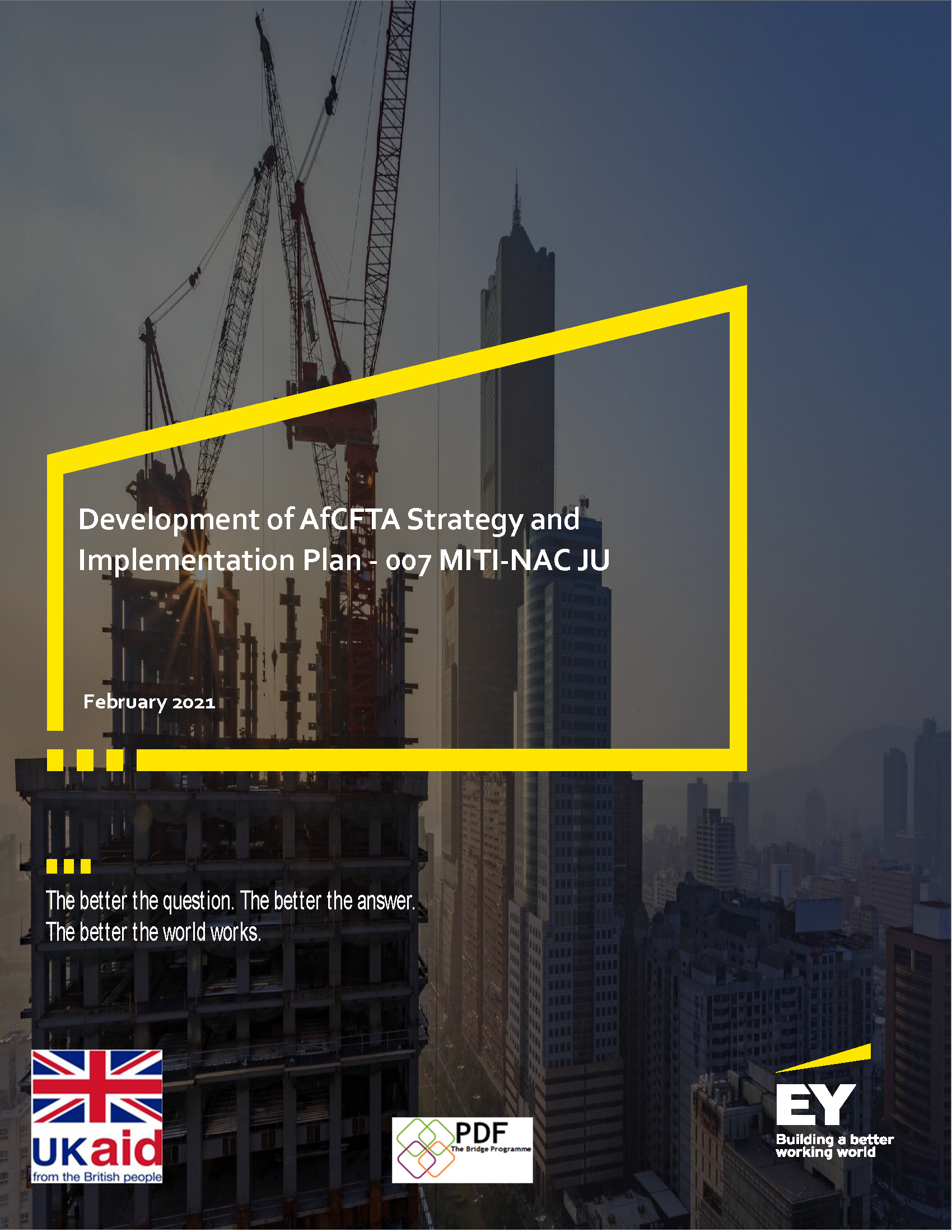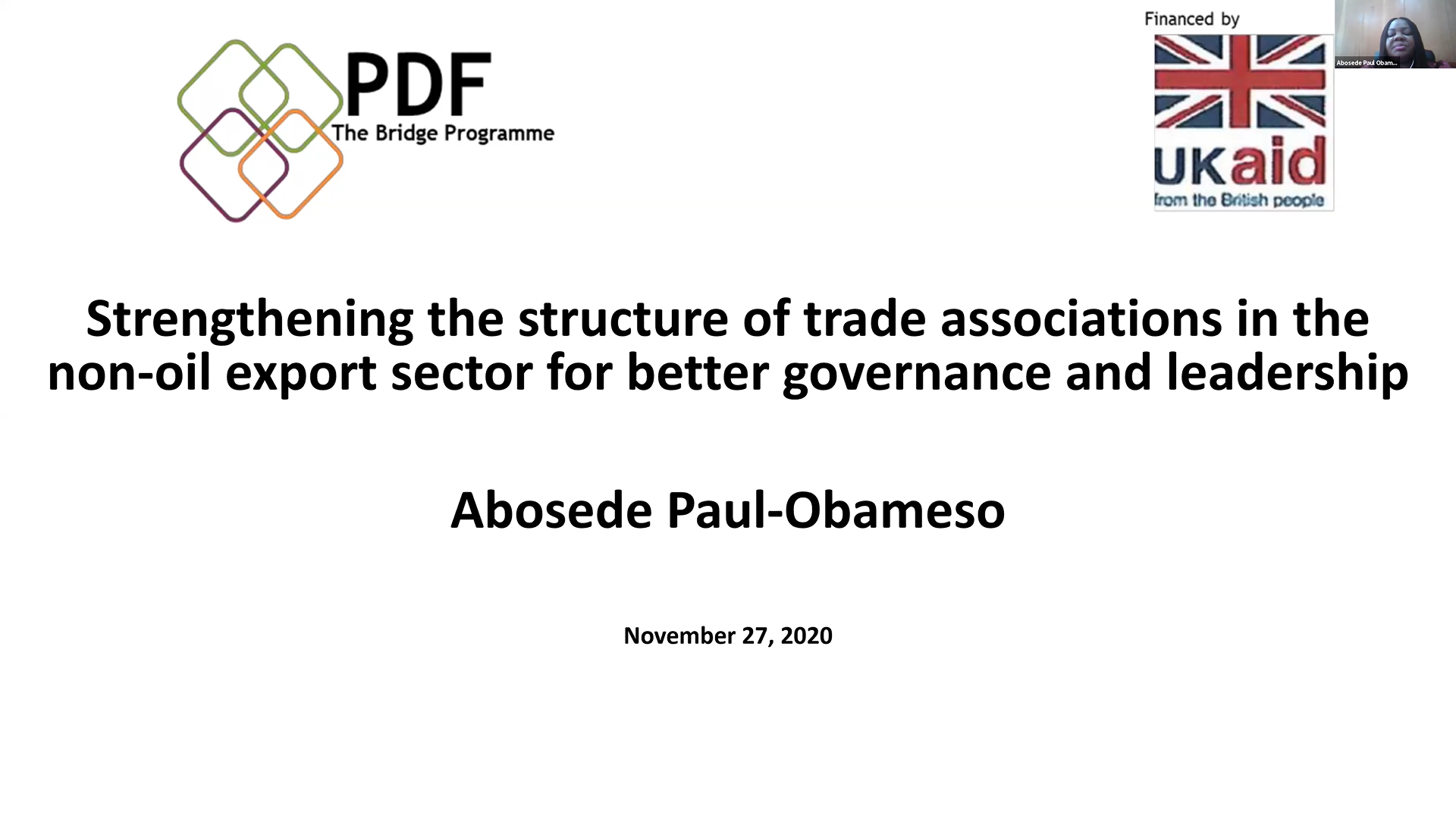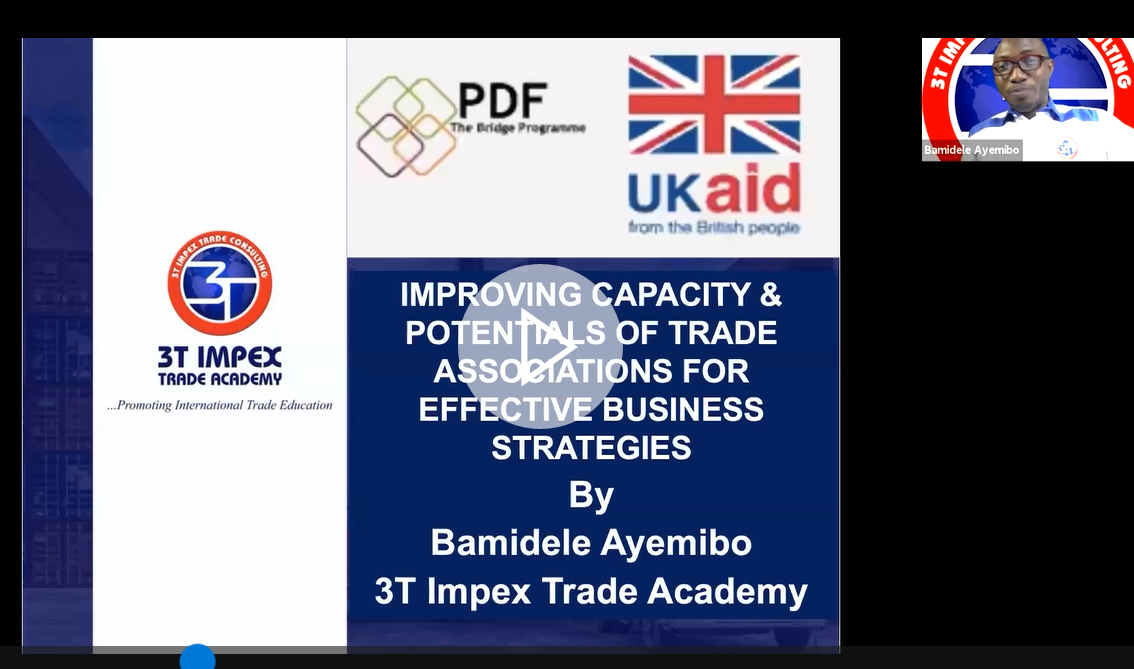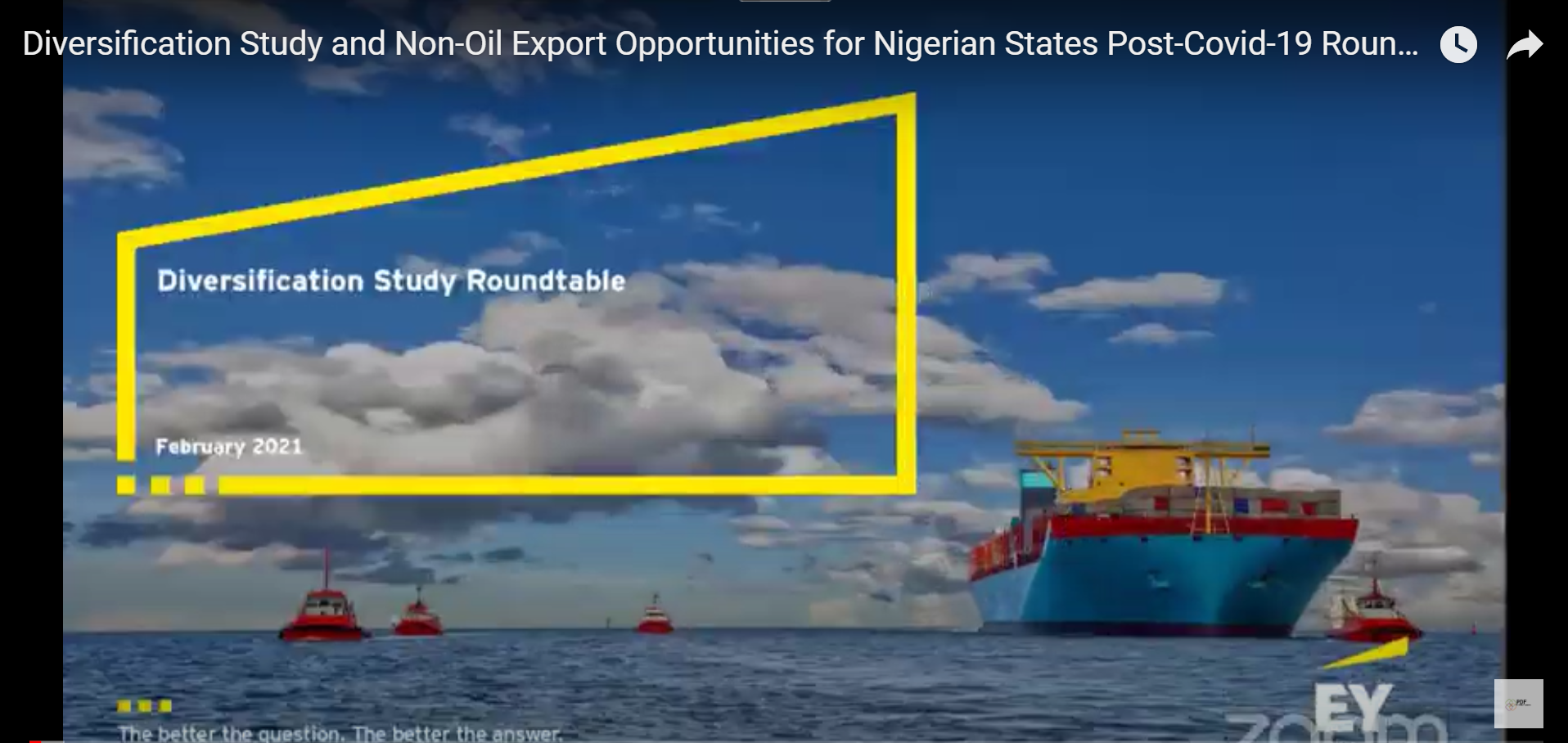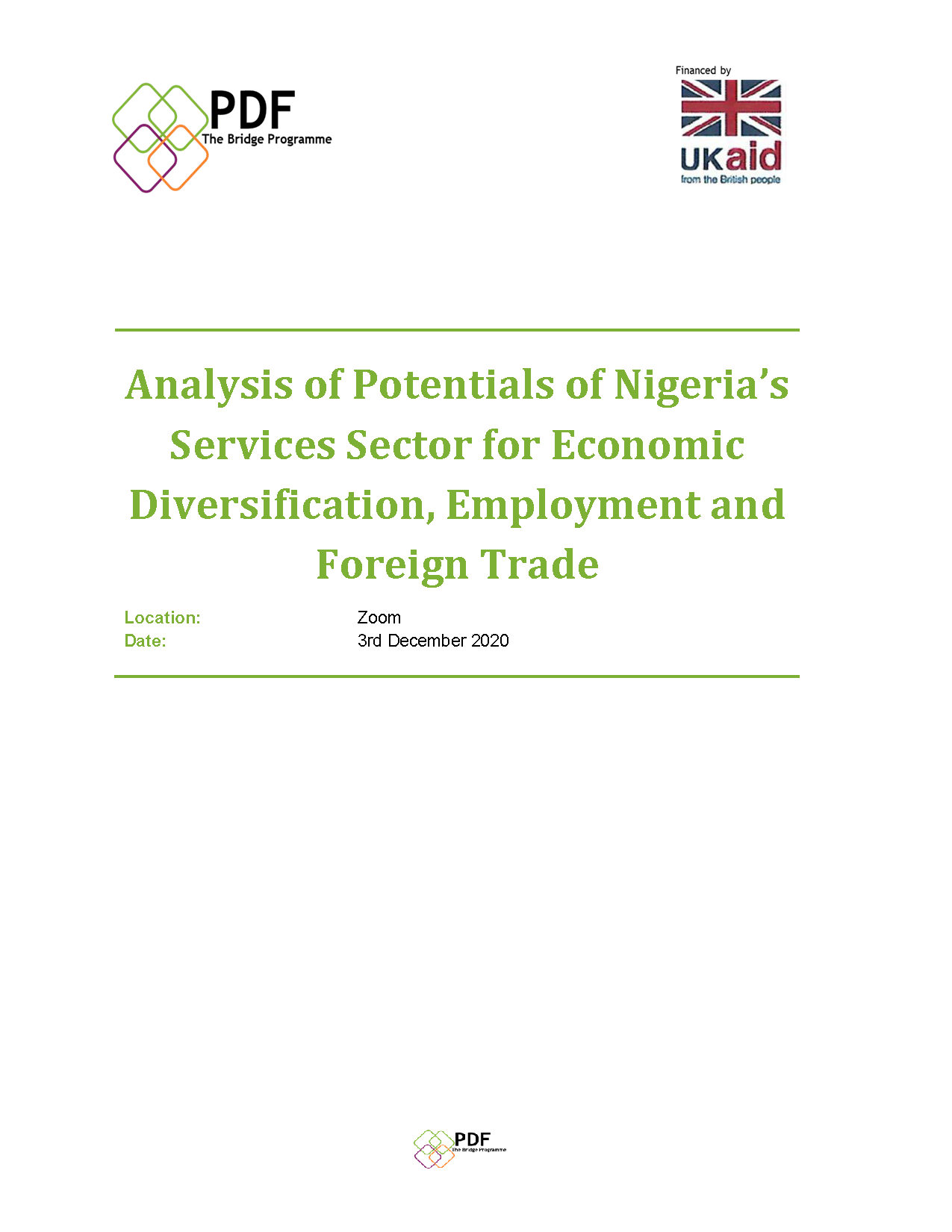PDF Bridge Monthly Newsletter – Tenth Edition
We are happy to share the March special edition of the Bridge Digest with you. This edition features the official presentation of the Study To Inform The Ratification Of The African Continental Free Trade Agreement (AfCFTA) by the PDF Bridge Programme Manager Dr Titilola Akindeinde to the Minister of Industry, Trade and Investment (FMITI), Otunba Richard Adeniyi Adebayo CON. This story and many more have been put together for your reading pleasure.


